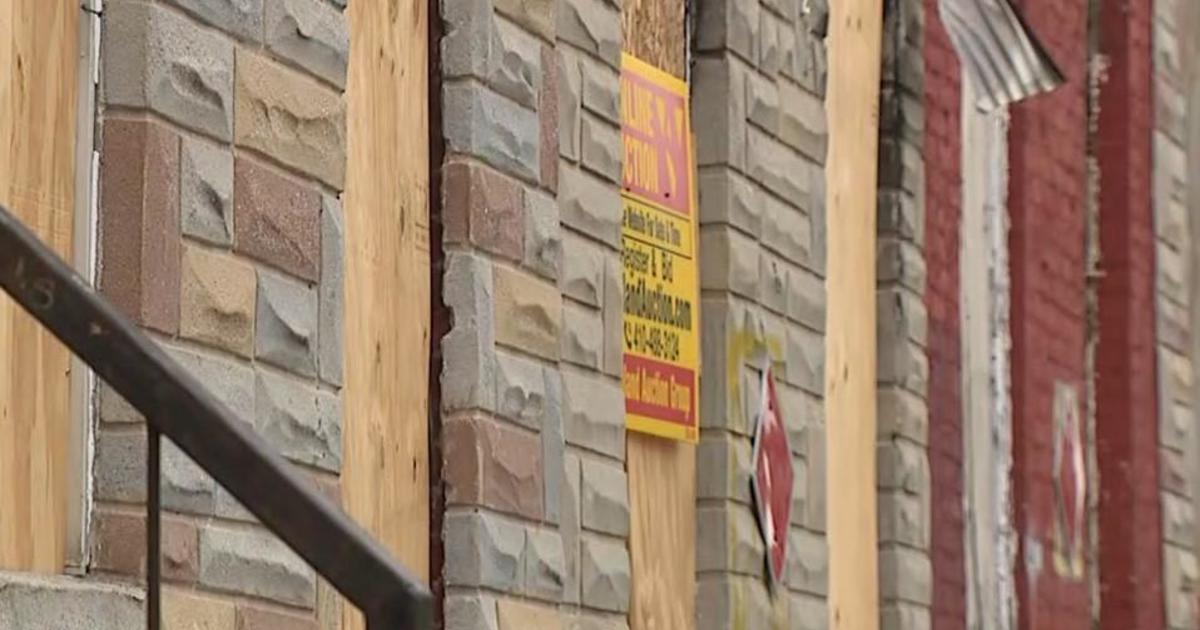Annapolis Woman Tries To Rebuild Life
TIM PRUDENTE
The Capital
ARNOLD, Md. (AP) -- The contractor should be here. Where is the contractor? Tina Smith paces outside the Arnold home.
Glass is gone from the storm door. The mailbox took a dive into the flower bed. Don't even ask about the burgundy carpet in the kitchen. This four-bedroom Cape Cod has been vacant several years.
Now it belongs to her daughter, Melissa Smith.
Last fall, The Capital's story went viral about the Annapolis nursing student who twice pounded Hodgkin's lymphoma into remission, only to confront paralysis. A flash fundraiser was soon collecting $50,000, $103,000, $298,000 -- enough to buy the house. Is it enough, however, to restore Melissa's independence?
Speaking on a cellphone, Tina Smith apologizes. The contractor was sent to the Smiths' Annapolis apartment, that home without a handicap bathroom, where Melissa Smith, at age 30, must be helped to shower.
"Will you guys come out here?" Tina Smith asks. "We'll spend a couple minutes, then I'll take her home."
Melissa Smith rests in the car after another sleepless night, perhaps from worry, perhaps from the disease attacking her spinal cord. She noticed it two years ago: tingling, first in her left toe, then in her right. Pins-and-needles crawling up her legs. Transverse myelitis, doctors told her. By 28, she was paralyzed from the chest down. She was trapped in her third-floor apartment, wracked with the guilt of having to be carried out by friends.
"Hope for a home," the fundraiser was named. It was launched online by Smith's family to help her afford an accessible house. A popular entertainment website, http://www.thechive.com, spread her story. More than 12,000 people donated. Some $450,000 was raised.
Smith moved to a ground-floor apartment in Annapolis. The disease stopped creeping ahead, but she remained paralyzed from the waist down. The apartment was without passable stairs, also without a handicap kitchen. She continued to search for a fixer-upper house where she could tear down walls to fit her wheelchair.
She dreamed of a handicap bathroom, where she could brush her teeth without a bowl of water in her lap. She dreamed of reaching the sink. This summer, she closed on this Arnold home for $200,000.
On Aug. 14, she visited. Now, the contractor and decorator arrive. Tom Salter and Deb Sagerholm dismiss her apologies for the mix-up. Smith is forgetful, another of her symptoms.
Salter pushes her wheelchair forward.
"I'm so sorry," she says.
"You are now entering your bathroom," says Sagerholm, the decorator. The paint is peeling, carpet is stained. A smell of cats lingers.
"Here is going to be your makeup, your vanity," she sweeps an arm, "and this is your shower. You could have a shower party, there's going to be so much room."
Smith grins.
Her budget is about $100,000 for new bathroom, kitchen, doors, windows, floors -- a complete remodeling, to be handicap accessible. The shower alone will cost thousands of dollars.
"I feel so nervous about making the right decisions," Smith says. "It's going to be really hard to stretch the money."
Of $450,000 in donations, the fundraising website, http://www.gofundme.com, took its share of about $67,000, she says. The rest was preserved in a special-needs trust to avoid taxes.
"So many people helped me. I don't know how I can pay them back."
Some $9,000 was spent on a standing frame. In its grasp, she can ease weight onto her legs.
"It helps me forget," she says.
It's no replacement, however, for physical therapy at Kennedy Krieger Institute in Baltimore. Smith's Medicare insurance caps her therapy at 40 hours a year. Paying privately would cost $300 a day.
After therapy last year, Smith felt the forgotten muscles in her thighs. Months later, her sessions exhausted, the feeling faded. About one-third of transverse myelitis patients gain back most movement. Another third gain back some. The rest gain nothing.
"If I had double the amount of therapy," Smith says, "I could at least make progress."
Smith also bought a bed that rises, so she can slide unassisted into her wheelchair. She spent $25,000 on a car, a Honda Crosstour, to be fitted with hand controls. She may soon drive for the first time in years.
"No one thinks about the time you spend alone in the car, just playing music," she says. "I really miss that."
Her guilty pleasure: Britney Spears.
Still, doubts linger: Will she learn to move from her wheelchair to her car? A terrifying video online shows one person's failed attempt. The wheelchair rolls down the street. "What would you do?"
House renovations may require everything.
"I'm petrified to do that because I don't know what's going to happen," she says.
Beneath the fears rests the dream that one morning she wakes, slides into her wheelchair, rolls in the kitchen, cooks breakfast for her young nephew. She lets out her dogs, Tank and Dozer, into a fenced backyard. She showers unassisted.
"I'm scared. I'm always scared, but I'm excited."
She dreams of cooking Thanksgiving dinner in her new home, though it may not be ready until Christmas.
Salter, the contractor, reassures her. A stable home, he says, is a base to build a recovery. She nods.
Perhaps they find unforeseen expenses. Perhaps money falls short for remodeling the bathroom, the kitchen. Perhaps independence escapes her, again.
Perhaps it works -- this chance, from a miracle flash fundraiser, to rebuild her life.
(Copyright 2013 by The Associated Press. All Rights Reserved.)



